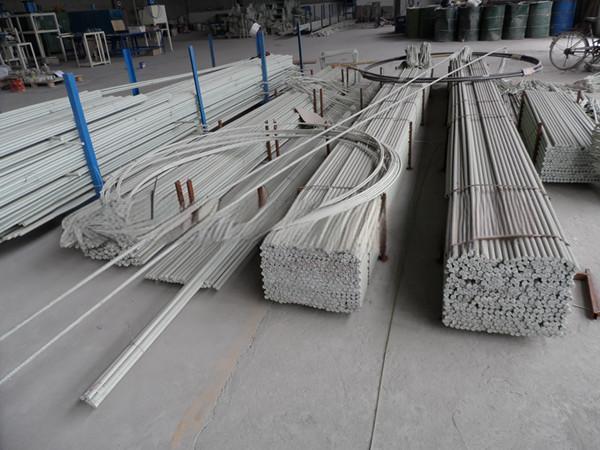- July 31, 2024
- Posted by: wellcoindustries
- Category: Rebar
Introduction
In recent years, the construction industry has seen a significant shift towards innovative materials that offer superior performance and durability. One such material is fiberglass rebar, which is rapidly gaining popularity due to its numerous advantages over traditional steel rebar. In this article, we will explore the design aspects of fiberglass rebar, its benefits, applications, and important considerations for its installation.

Understanding Fiberglass Rebar
Fiberglass rebar, also known as glass fiber-reinforced polymer (GFRP) rebar, is a type of composite material made from high-strength glass fibers embedded in a resin matrix. Unlike steel rebar, which is prone to corrosion and rust, fiberglass rebar offers exceptional resistance to harsh environmental conditions, making it an ideal choice for a variety of construction projects.
When comparing fiberglass rebar to traditional steel rebar, several key differences stand out. Fiberglass rebar is non-corrosive, lightweight, and non-conductive, which makes it suitable for use in environments where steel rebar would quickly deteriorate or pose safety risks. Additionally, its high tensile strength and flexibility make it a versatile option for reinforcing concrete structures.
Benefits of Fiberglass Rebar
One of the most notable benefits of fiberglass rebar is its corrosion resistance. Unlike steel rebar, which can rust and weaken over time, fiberglass rebar remains unaffected by moisture, chemicals, and saltwater. This makes it an excellent choice for marine and coastal construction projects where exposure to corrosive elements is a major concern.
Fiberglass rebar is also significantly lighter than steel, making it easier to transport and handle on construction sites. This can lead to reduced labor costs and increased efficiency during the installation process. Furthermore, the non-conductive properties of fiberglass rebar eliminate the risk of electrical hazards, making it a safer option for structures exposed to high-voltage environments.
Applications of Fiberglass Rebar
The unique properties of fiberglass rebar make it suitable for a wide range of applications. In marine and coastal construction, it is used extensively to reinforce piers, docks, and seawalls due to its excellent resistance to saltwater corrosion. Bridges and highways also benefit from the use of fiberglass rebar, as it helps extend the lifespan of these structures by preventing corrosion-induced damage.
In addition, fiberglass rebar is commonly used in the construction of building foundations, where its lightweight nature and high strength contribute to the overall stability and durability of the structure. Other applications include retaining walls, tunnels, and precast concrete elements, where the non-corrosive and non-conductive properties of fiberglass rebar offer significant advantages.
Design Considerations for Fiberglass Rebar
When designing with fiberglass rebar, several important factors must be considered to ensure optimal performance and structural integrity. One key consideration is the load-bearing capacity of the rebar, which can vary depending on the specific composition and manufacturing process. Engineers must carefully evaluate the tensile strength and flexibility of the fiberglass rebar to ensure it meets the requirements of the project.
Installation techniques for fiberglass rebar also differ from those of steel rebar. Special care must be taken to avoid damage to the rebar during cutting and bending, and appropriate tools and methods should be used to ensure proper installation. Additionally, the cost of fiberglass rebar, while generally higher than that of steel, can be offset by its longer lifespan and reduced maintenance requirements.
Conclusion
Fiberglass rebar is an innovative material that offers numerous benefits over traditional steel rebar, including corrosion resistance, lightweight properties, and enhanced safety. Its versatility and durability make it an ideal choice for a wide range of construction applications, from marine structures to building foundations. As the demand for high-performance construction materials continues to grow, fiberglass rebar is poised to play a crucial role in the future of the industry. For more information on how fiberglass rebar can benefit your next project, contact our team of experts today.
